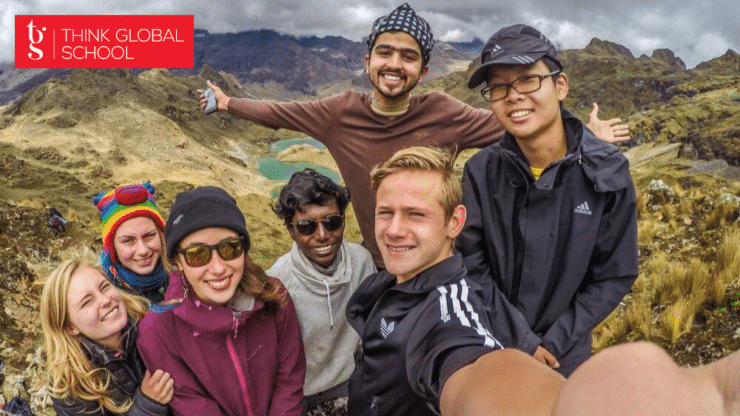Traveling not only expands your worldview, but it also enriches your life and creates long-lasting memories. Typically, when high school students want to travel, they either need to apply for a study abroad program or pay for it on their own or with their family’s help.
But now, there’s another option for high school students: a traveling high school that goes to four different countries every school year! It’s also a non-profit school that offers financial assistance for students who cannot pay the full tuition fees.
Students do not need to have perfect grades or be #1 in their class to go to this school. They just need to demonstrate that they are eager to learn and experience new cultures with empathy and openness. They also need be responsible, flexible, independent, and innovative.
THINK Global School is the world’s first traveling high school. This non-profit school was established in 2010 by Joann McPike, a photographer from New Zealand. Having traveled to over 100 countries at the time, Joann shared her love of travel with her son, Alex, who traveled to over 70 countries with his adventurous parents.
ALSO: You Should Encourage Your Teen to Travel After High School
When it came time to find a high school for Alex, Joann was disappointed that she couldn’t find a school that embraced travel the way her family did, so she decided to open her own school instead.
THINK Global aims to teach students empathy through immersion in different cultures and countries. The core values of the school are empathy, perseverance, self-awareness, passion sustainability, curiosity, challenging assumptions, honesty, and connection to the world and its people as a whole.
Joann was able to set up a foundation for her school which gives it enough funding to become a non-profit so that she can welcome a diverse group of students from around the world and from various social classes.
This is a key difference from other non-traditional schools, which can be very expensive and usually only has students from wealthy families. When I taught at a Reggio preschool and even traditional private schools, all my students were from affluent families. It bothered me because I think all students should have access to non-traditional education regardless of their economic background.
The curriculum at this traveling high school is project-based. There isn’t any homework and there aren’t any tests. Instead, students are asked “driving questions” which are questions based on the location that will help students create projects.
THINK Global gives an example of a driving question from their website.
“During our Bosnia & Herzegovina term, for example, while students were exploring the process of reconciliation, they were asked to answer the following driving question: How can we convey the complexities of ethnic and religious reconciliation through our experience of Bosnia and Herzegovina?”
Students work in teams, go on field trips, and listen to guest speakers to help them learn more about the local culture and help them with their projects. They also have a lot of opportunities to engage with the local culture and interview local experts. This both enriches a student’s learning experience and teaches them how to travel respectfully and ethically while engaging with local people instead of being separated like most tourists are.
This school year, the students at THINK Global will be learning in Bosnia & Herzegovina, Australia, Ecuador, and Greece. In the past, the school has traveled to countries like Peru, Botswana, and China.
Depending on the country, students might sleep in a dorm room on a host school campus, a bungalow in the jungle, a hotel room, or a small apartment in the middle of the city. Students are fed three meals a day and will get to try lots of local cuisine. They will also learn how to shop and cook for themselves which is a valuable life skill.
Safety is very important, so the school has safety rules in place based on the location and suggestions from a medical and travel security assistance company that they work with.
Students have to attend all classes and must follow the curfew rules for their safety, but they’re encouraged to explore the area during their free time.
Instead of teachers, THINK Global has educators which give students individualized attention and guides them. There is one teacher for every 2-4 students and the relationship between teacher and student is more like a mentorship and friendship rather than being authoritative.
I first heard of this school when I was taking a teacher development course at a local university. I met a teacher from THINK Global and was really surprised that a school like this existed. I wish I could have gone to a traveling high school when I was a teen!
If you have an adventurous teen who is also creative, independent, responsible, and would do well in a school like this, you can get more information here.
You can also watch this informative video from a former student who loved her experience and recommends it. She answers a lot of common questions that you might have about the school.
Would you let your teenager go to a traveling high school? Tell us in the comments below!








Add comment